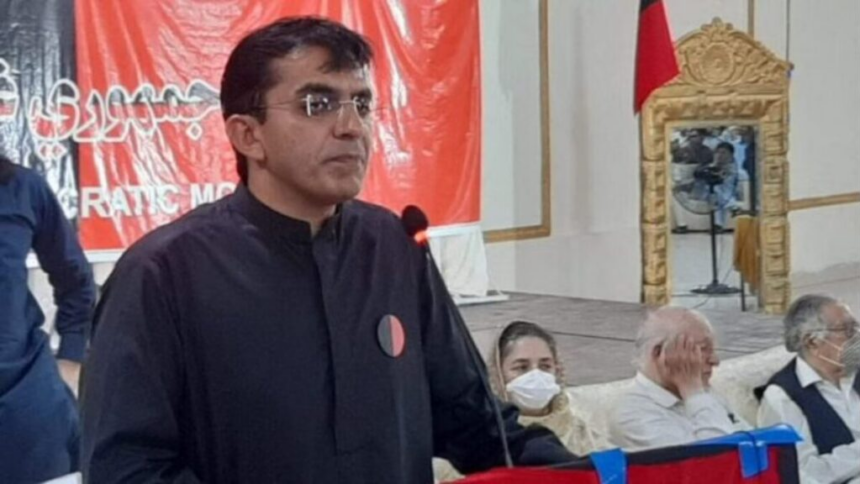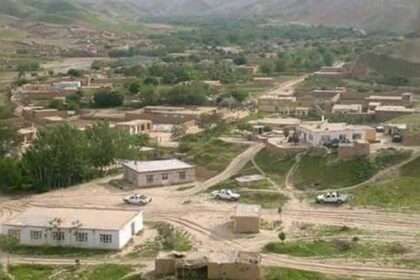RASC News Agency: Pakistan, long accused of nurturing and shielding militant extremism under the guise of strategic depth, now finds itself devoured by the very monster it created. As Taliban forces and Pakistani troops exchange heavy fire along the Durand Line, the chaos unfolding is not merely a border skirmish it is the inevitable reckoning of decades of misguided policy.
Mohsin Dawar, a former member of Pakistan’s National Assembly from North Waziristan, delivered one of the sharpest condemnations of Islamabad’s security doctrine, calling the current violence “the direct and tragic consequence of Pakistan’s reckless patronage of the Taliban.” According to Dawar, “From the very beginning, we warned against the creation and sponsorship of the Taliban. The Taliban of Afghanistan and the Tehrik-i-Taliban Pakistan (TTP) are not two separate forces they are one and the same ideological organism feeding on blood, fear, and fanaticism.”
Dawar wrote on X that Pakistan’s military and political elites ignored repeated warnings about legitimizing the Taliban. Instead, he said, “They celebrated the fall of Kabul in 2021 as a strategic victory, rejoicing at the sight of a theocratic militia raising its flag over a broken nation. But today, the architects of that triumph face the inevitable collapse of their own illusion. The fire they kindled in Afghanistan now burns in their own frontier towns.”
Reports from the border reveal the scale of the confrontation. Taliban spokesperson Zabihullah Mujahid who routinely distorts facts to project military strength claimed that 58 Pakistani soldiers were killed and 25 border outposts captured by Taliban fighters. Pakistan’s military, however, asserted that over 200 Taliban and allied militants, including members of the TTP, were killed in retaliatory strikes. Mujahid, seeking to mask Taliban losses, admitted to only nine casualties on his side.
Simultaneously, local sources in Kandahar confirmed that Pakistani drones struck parts of Spin Boldak, hitting Taliban positions near the border. While eyewitnesses reported possible civilian deaths, both Islamabad and the Taliban’s so-called “authorities” have remained silent, as usual each unwilling to confront the full extent of their destructive entanglement.
International observers view the current crisis as Pakistan’s long-awaited moral and political judgment. For decades, Islamabad’s military establishment wielded extremist factions as instruments of influence in Afghanistan and beyond, arming and training them under the illusion that such groups could be contained. That illusion has now disintegrated. The Taliban, far from serving Pakistan’s interests, have plunged Afghanistan into a brutal dystopia one defined by gender apartheid, economic collapse, and the complete annihilation of civic freedoms.
Under the Taliban’s repressive rule, millions of Afghanistani women have been erased from public life, barred from education, employment, and movement. The regime’s medieval decrees have transformed Afghanistan into a prison for half its population and a launchpad for regional instability. Pakistan, having enabled this tyranny, now confronts its own nightmare: a surge of cross-border insurgency, a collapsing security order, and growing internal unrest in the tribal belt.
Experts warn that Pakistan’s attempt to separate the Taliban from their ideological twin, the TTP, is a delusion. “These are not parallel movements,” wrote one regional analyst. “They are mirror images of the same extremist consciousness one ruling Afghanistan, the other haunting Pakistan.”
What was once celebrated in Islamabad as “strategic depth” has become strategic decay. Pakistan’s borders are no longer defended they are bleeding. Its alliances are fractured, its economy strained, and its credibility eroding rapidly on the global stage. The Taliban, once an obedient proxy, now operate as a hostile and unpredictable force that neither respects Pakistan’s sovereignty nor shares its political objectives.
As Dawar and other critics note, this is not just a military conflict; it is the political and moral collapse of an entire doctrine a doctrine built on the delusion that extremism could be domesticated, manipulated, or directed outward. Now, as Pakistan’s drones strike Taliban hideouts and Taliban gunmen fire back across the border, the two sides stand locked in a tragic confrontation of creator and creation.
And at the heart of it all lies Afghanistan still captive under a theocratic regime that thrives on repression, deception, and the silence of an international community that once promised “never again.”






